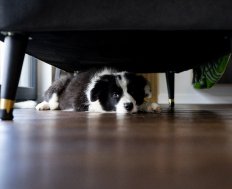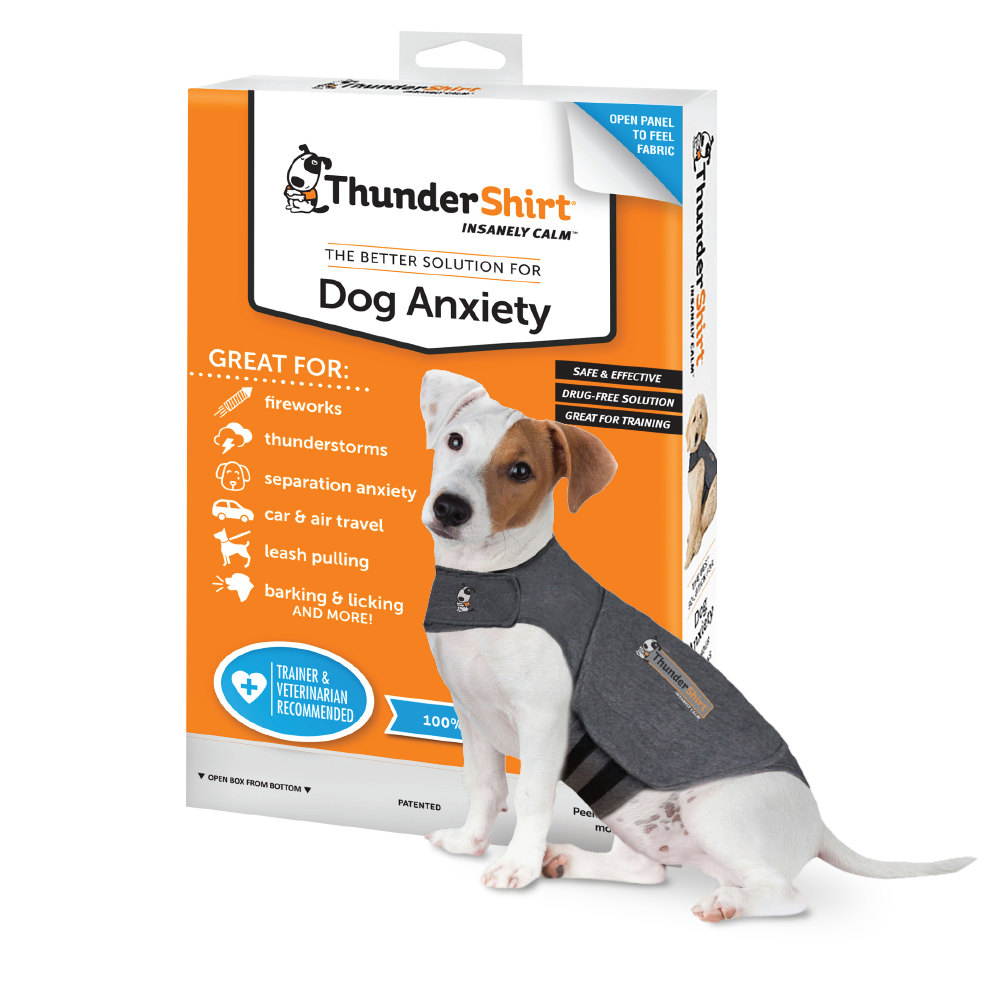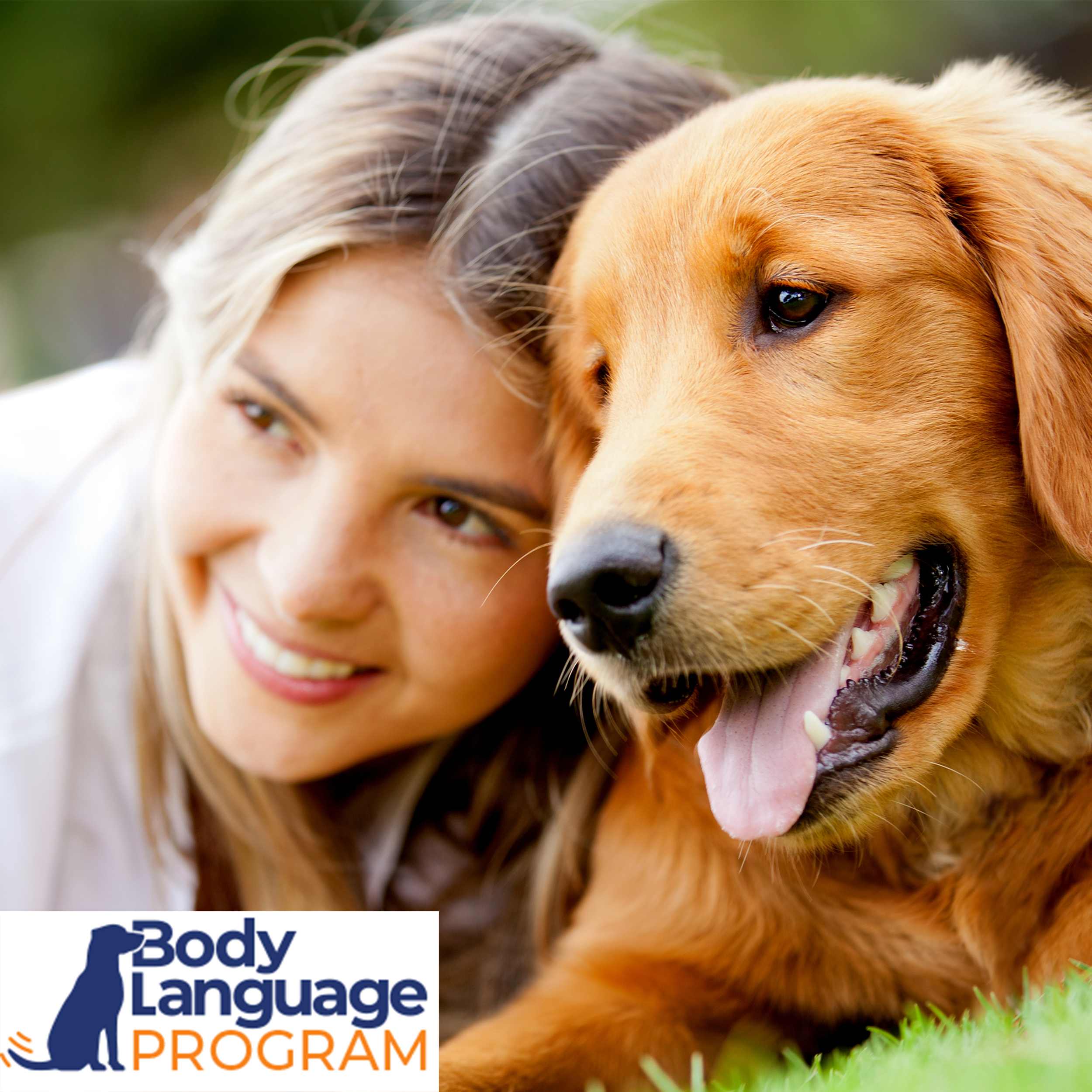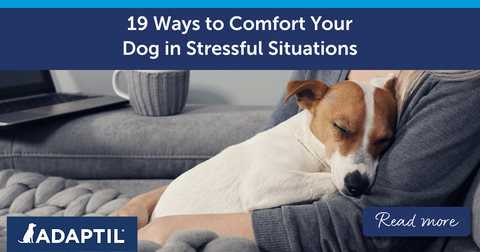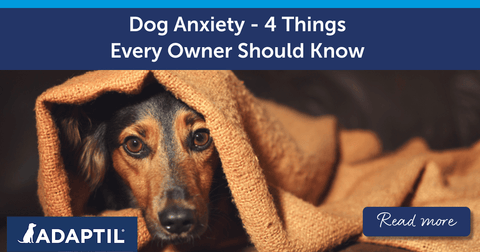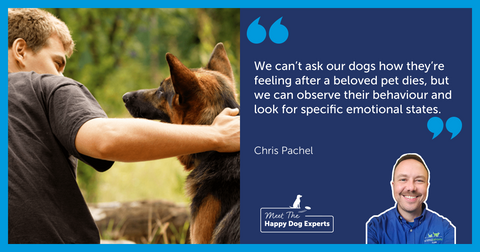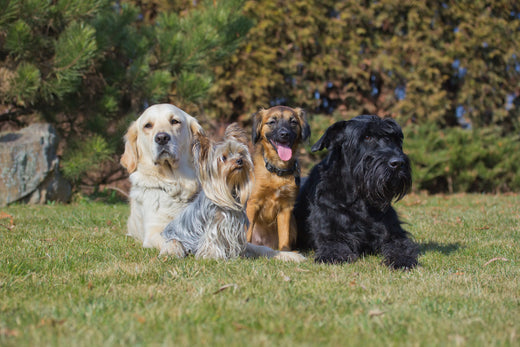
What Dog Breeds are Friendly With Other Dogs?
Like humans, dogs have their own individual character and their temperament traits are frequently related to their genes; researching the breed, talking to doggie experts (like vets or dog behaviourists) would be a good start when you are trying to determine what dog breeds are friendly with other dogs.
As puppies will inherit aspects of their parents' personalities and learn from their mum during the first few weeks, it's important to meet the puppy's mum (and ideally the dad) when they are still in the litter. Ideally the mum will greet you in a calm and friendly manner.
A good breeder will allow you to visit more than once if necessary and watch how the puppies behave in their litter; or, if you are looking at rehoming a rescue dog, the rehoming staff will be able to give you lots of information about every dog, allowing you to make an informed decision about which pooch will fit in well with your lifestyle.
Signs of Friendly Pooches to Watch Out For!
Generally, you should look out for these signs, especially when choosing a puppy, to get a better understanding of a dog's personality:
- Are they happy to approach you are are they hanging back?
- Do they like being handled?
- Are they playing nicely with their siblings (if they are young, and with them)? Remember when you see puppies mouthing, they are not being aggressive, but playful.
- Are they very vocal or are they relaxed?
A doggy's future behaviour will also very much depend on their early experiences, if they are taught to socialise with other dogs, and if they have received good training as a puppy. Using ADAPTIL Junior can also help a puppy stay calm and confident as they learn, train and explore the world around them!
Friendly Dog Breeds
All dogs can be our happy best friends! However, some dog breeds will be inherently friendly with other dog breeds (as it's in their genes!). Take a look at this blog to discover which dog breeds are most friendly. For example, pack hounds often view other dogs as part of their team, and hunting/retrieving dogs are often calm, obedient and enjoy the company of other dogs.
Specifically, the following breeds & crossbreeds are some (but there are others!) that are often described as being friendly with other dogs:
- Cocker Spaniel: These are energetic and playful dogs both with humans and other dogs. They are happy and smart with a gentle personality and get on well with other pets.
- Basset Hound: Very relaxed pooches that get on well with other dogs and are very happy to 'go with the flow'.
- Goldendoodle: This breed gets along with humans and dogs alike; they have a lovely nature and are very playful.
- Golden Retriever: Similar in temperament to the Goldendoodle, as they like to make friends with humans and other dogs.
- English Foxhound: As these are pack dogs they actually prefer to be around other dogs. They can quickly get bored if they are on their own and need lots of exercise and playtime.
- Maltipoo: A mix of the Maltese and the Poodle so they have fun-loving and affectionate characters and are very happy to live alongside other dogs and pets.
- Peekapoo: Another versatile breed, known for their intelligence, loyalty, and affection. They do well in families, especially when socialized from a young age and they get on very well with other dogs.
- Corgi: A 'royal' dog that loves being in the company of other dogs. A favourite of the Queen of England who has had over 30 Corgis during her reign!
- Whippet: Known for being very athletic, they are affectionate, calm, and great companions for other dogs that have similar energy levels!
- St Bernard: Although these dogs need a lot of space, they are very gentle and are excellent around children and other dogs, especially when socialised and well trained.
- Great Dane: Another big dog choice and a gentle giant. Very affectionate and they get on well with other dogs.
- Vizsla: These are one of the most affectionate breeds and make great family dogs. They are very energetic and enjoy the company of other dogs.
- Labrador Retriever: Very enthusiastic dogs that love the companionship of other dogs.
- Coton de Tulears: Very smart and loving dogs that get on great with both humans and other pooches, and always wanting to join in with whatever you are doing.
- Pointers: Hunting dogs which are fit and agile, and love having another dog around to play with. They are full of energy but with a calm nature.
Of course, dogs have their own individual characteristics, but with the right training and by teaching them to be sociable with both humans and dogs, you can help them become friendly towards other dogs.
How to help your dog be friendly with other dogs
Socialisation
Early socialisation is key! Socialisation should start when your puppy is with their mum and continue when you adopt them; there is a window of time when they are sensitive to learning about new things in their world, up to when they are about 16 weeks old. Puppy socialisation classes are a great way to encourage your pup to learn and develop, and get them used to new experiences. At socialisation sessions, your puppy will learn to interact and communicate with other dogs (and people) in a safe and controlled environment; try to ensure they mix with different breeds so that they will learn that their species comes in all shapes and sizes - and temperaments. However, don't force your puppy to interact with other dogs - just let them do so in their own time.
Your puppy will be exposed to many new smells, sounds, people and other dogs which may make them nervous. Be aware of their body language and be ready to reassure them if they show signs of being anxious or nervous, such as trying to hide or cowering. Don't force them to interact, give them some space (maybe even move away), and try again another time.
Using an ADAPTIL Junior Collar is an excellent solution to help your dog stay calm and give them extra support whether at home or outside, and adapt to situations like loud noises, socialisation and training.
Training
Dog training is an important part of helping your dog to be friendly with other dogs, and starting when they are puppies is essential. Basic reward-based training and teaching your pup cues such as 'sit' or 'stay' can help when you meet other dogs. Take a look at these 4 top tips for positive training. Also, teaching them to respond when you call them will help you stay in control if required, and keeping your training fun and positive will encourage your dog to obey you.
Introducing another dog to your home
If you are bringing another dog into your family, it's important that introductions are managed and made gradually. Even if your dog breed has a good temperament, they may feel that their nose is put out of joint if you bring another cute puppy home without appropriate introductions!
Consider these tips to help them get along:
- Choose a dog breed that is known to get on well with other dogs (like the selection above).
- If allowed, take your resident pooch to meet the new puppy when they are still with their mum and litter mates.
- Introduce them to each other on neutral territory, such as on a walk if both dogs are fully vaccinated.
- Bring the new puppy into your home while the resident dog is out for a walk. This will help the new puppy get used to all the new smells and surroundings.
- When they first meet, keep them both on leads so that you have control and they can be separated more easily, if required.
- Keep a watchful eye out for any signs that either dog is not comfortable and take steps to move them away from the situation. Try again when both dogs are calm and at a greater distance apart.
- Don't leave them alone together until you are satisfied that they are getting on well.
- Reward them both for being calm around each other.
- Put their beds in different rooms to start with, so that they can still have their own spcae, especially when you are trying to sleep at night.
- Similarly, separate them when feeding. This way, you will be able to keep a track on how much each dog is eating, too.
- Make sure there are enough toys to go round at play time.
- Your new puppy will be super cute and will attract lots of attention, but remember to make just as much fuss of your resident pooch too!
- Patience is a virtue! It can take some time for them to become best friends as they adjust on their own terms!
You may have to adopt a Kofi Annan role for a little while until they become the best of buddies, but if you find that they are just not bonding, you may need to get them checked out by a vet in case either of them has any underlying issues, or you may benefit from help from an accredited dog behaviourist.
Plugging in an ADAPTIL Calm Home Diffuser into the room where your dogs spend most of their time will help provide a calm, reassuring environment for your dogs - and your household.
{{cta('4d26d1d8-3e72-49e8-ae64-eef670d1bbb2')}}


